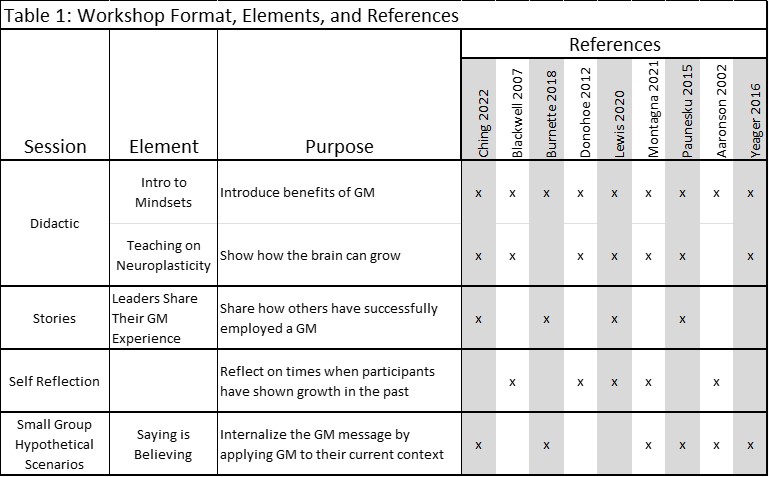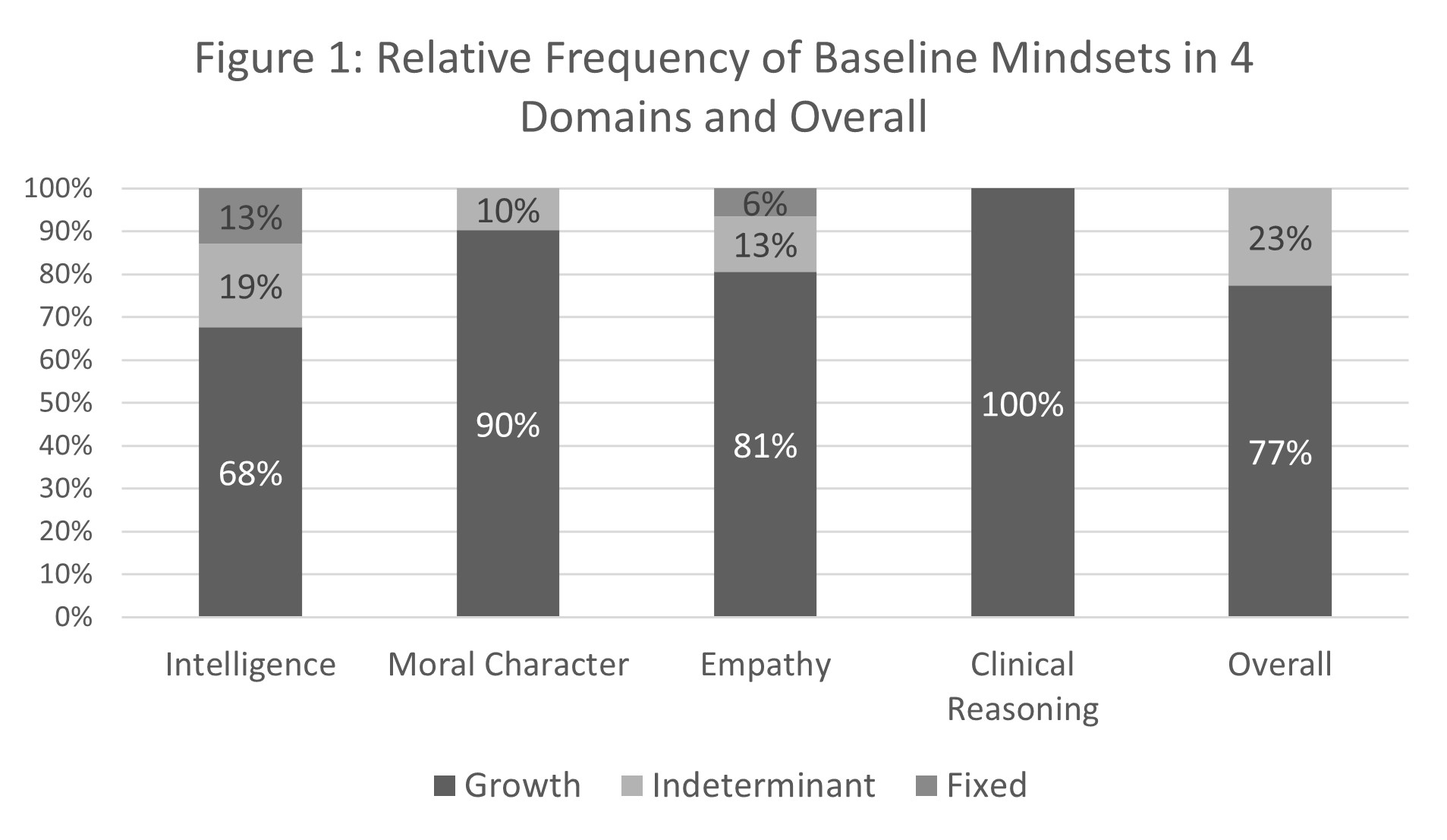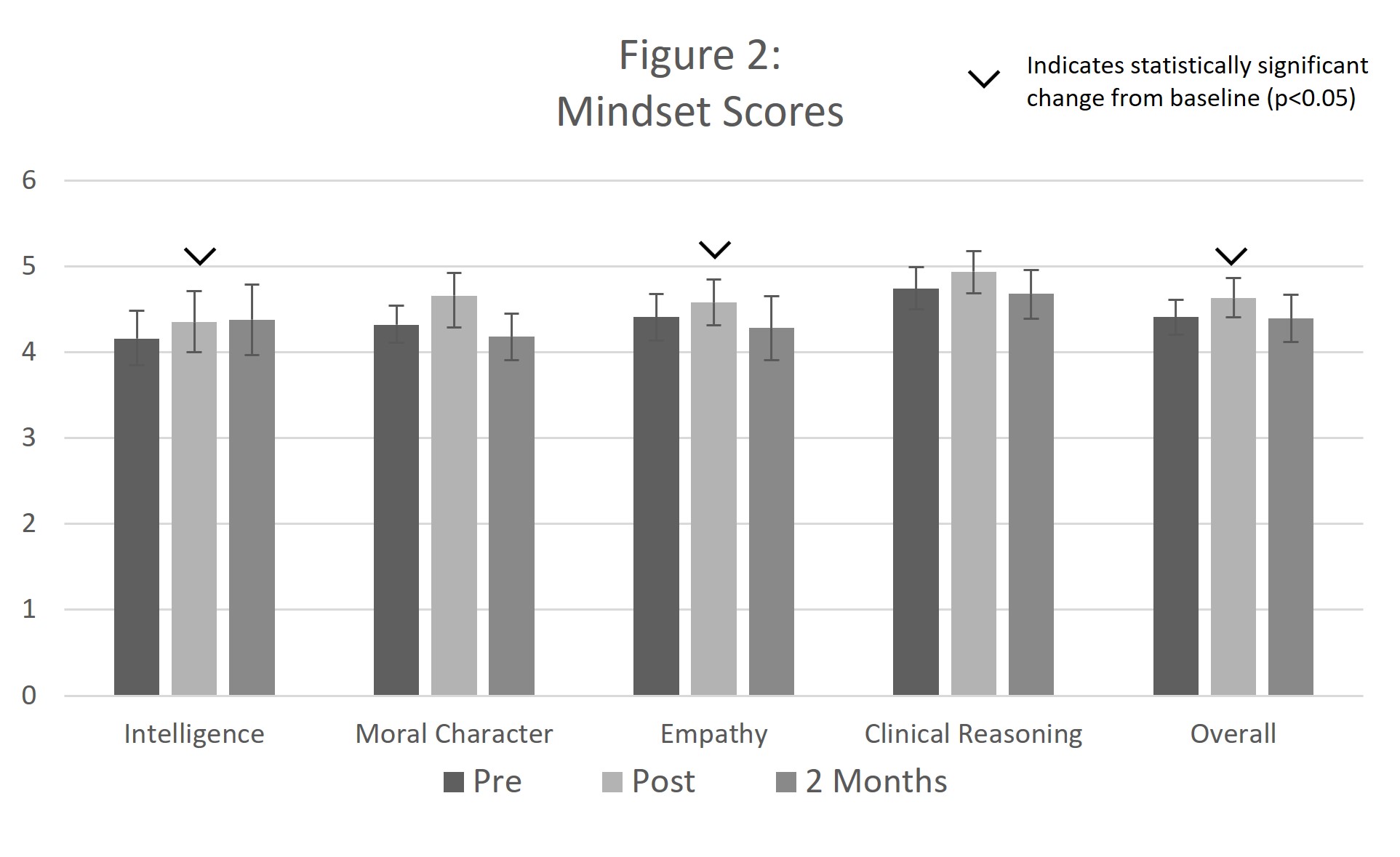Medical Education
Session: Medical Education 5
412 - Mixed Methods Evaluation of a Workshop to Promote Growth Mindset in Pediatric Residents
Saturday, May 4, 2024
3:30 PM - 6:00 PM ET
Poster Number: 412
Publication Number: 412.1096
Publication Number: 412.1096
- ZG
Zachary D. Gray, MD (he/him/his)
Pediatric Critical Care Fellow
University of Wisconsin School of Medicine and Public Health
Mcfarland, Wisconsin, United States
Presenting Author(s)
Background: Growth mindset (GM) – the belief that skills and abilities can be improved through effort and good strategies – has been found to yield many benefits in medical trainees. Although studies have demonstrated the effectiveness of workshops in fostering GM in a variety of learner types, we could not find examples in pediatric residency training.
Objective: Assess the effectiveness of a workshop in promoting GM in pediatric residents.
Design/Methods: A 3-hour workshop was modeled after published successful interventions in undergraduate medical learners, adapting elements for pediatric residents (see Table 1). A modified Mindset Inventory, which has been previously validated in studies of physician mindsets, was used to assess residents' mindsets before, immediately after, and at 2-month follow-up. Linear mixed effect models were used to analyze changes in mindset scores. Thematic analysis of semi-structured focus groups was conducted to explore residents’ attitudes towards the workshop, mindset theory, and barriers to employing GM in post-graduate medical education.
Results: Thirty-one 1st-3rd post-graduate year (PGY) pediatric residents completed the intervention. There was no difference in baseline mindset scores by PGY, gender, or self-reported prior exposure to GM theory. Mean mindset, intelligence, and empathy domain scores increased immediately following the intervention (p < 0.05 for each). These changes were not sustained at 2-month follow-up. Thematic analysis produced five major themes: 1) Feedback impacts residents’ ability to apply a GM, 2) Residents’ trust in faculty promotes a GM, 3) After the workshop, residents employed a GM when providing or receiving feedback, 4) Hypothetical scenarios were the most useful part of the workshop, 5) Residents have mixed attitudes toward the promotion of GM.
Conclusion(s): The workshop increased GM scores in pediatric residents immediately following but not at 2 months. Baseline mindset scores in our population were higher than in other populations. The potential reasons for this should be further explored. Future interventions informed by this thematic analysis may be used to affect more sustainable GM increases in pediatric residents.



